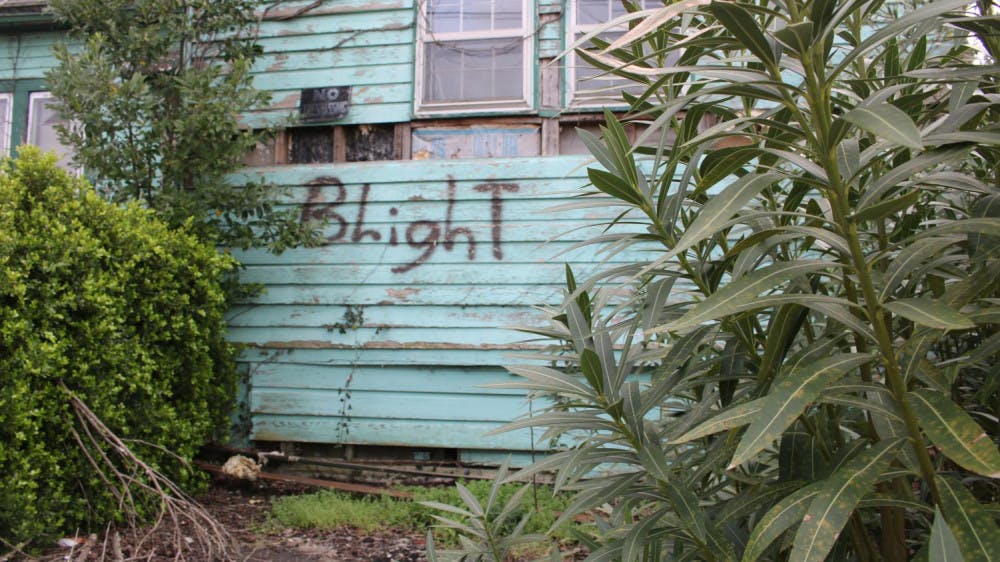Macon-Bibb’s county commissioners approved a new tax on blighted homes Feb. 19, according to an article by WGXA.
This tax will charge the owners of blighted properties seven times the current millage rate, according to an article by the Macon Telegraph.
A millage rate is the number that is multiplied per $1,000 of property value. This rate is also used to find the property tax for a building.
The commissioners said they hope this will help clean up Macon, as the city currently has 1,566 properties considered to be blighted, Cass Hatcher, Macon-Bibb blight consultant, said to the Telegraph.
The tax was proposed by Commissioner Joe Allen, who said the “worst of the worst” unoccupied blighted homes would be charged.
However, Mayor Robert Reichert believes this can cause people to not invest in Macon, as people will purchase fewer homes to rent, he said to the Macon Telegraph.
Andres Marroquin, visiting associate professor of economics at Mercer University, said he agrees with Mayor Reichert.
“If there is a possibility of a blight tax in the future, investors and homeowners might factor that in, so they might think twice before building a home or remodeling a home or making a business investment in some of these neighborhoods,” Marroquin said in an email to The Cluster.
Allen’s plan would keep tax money in the community, with all revenue from the tax going towards community redevelopment, according to a Macon Telegraph article.
Once the owner removes the blight, then they would only be charged half the millage rate for the next four years.
However, Marroquin said blighted homes are not just an economic problem.
“Blighted properties might be a symptom of deeper problems: crime and bad schools, for example,” he said. “People might abandon their homes, or firms might abandon their buildings because it is dangerous to live and operate in those neighborhoods. So the real problems might be others.”
New “blight tax” could discourage investment in Macon, according to Mercer professor





